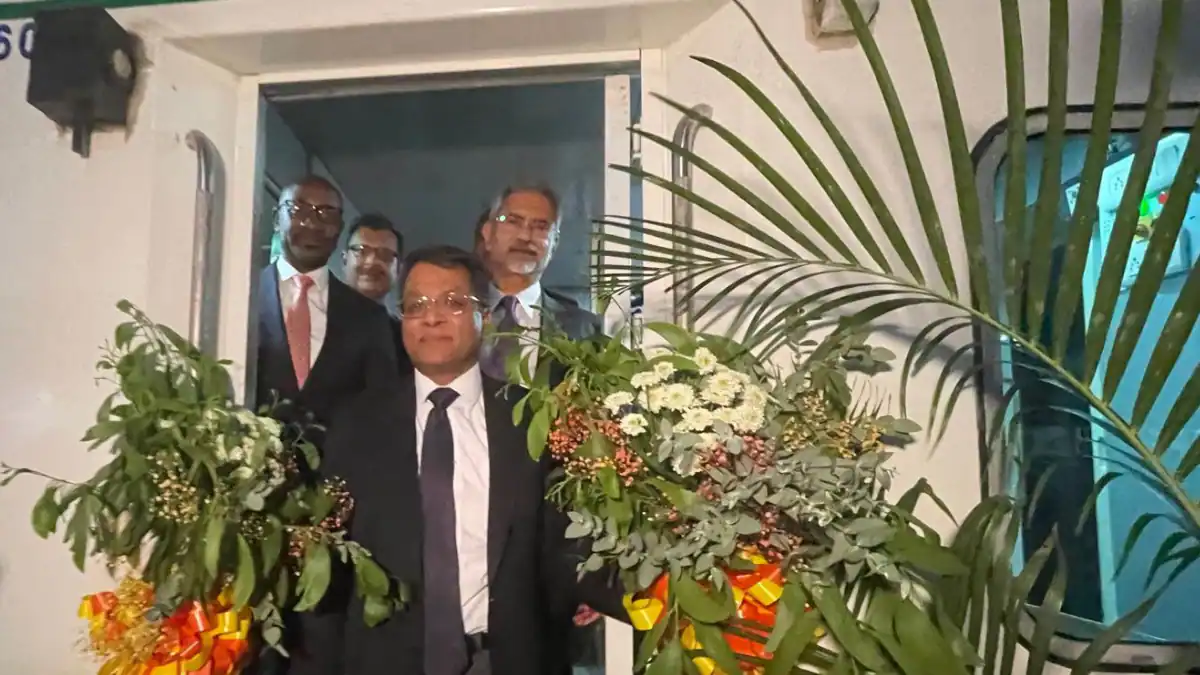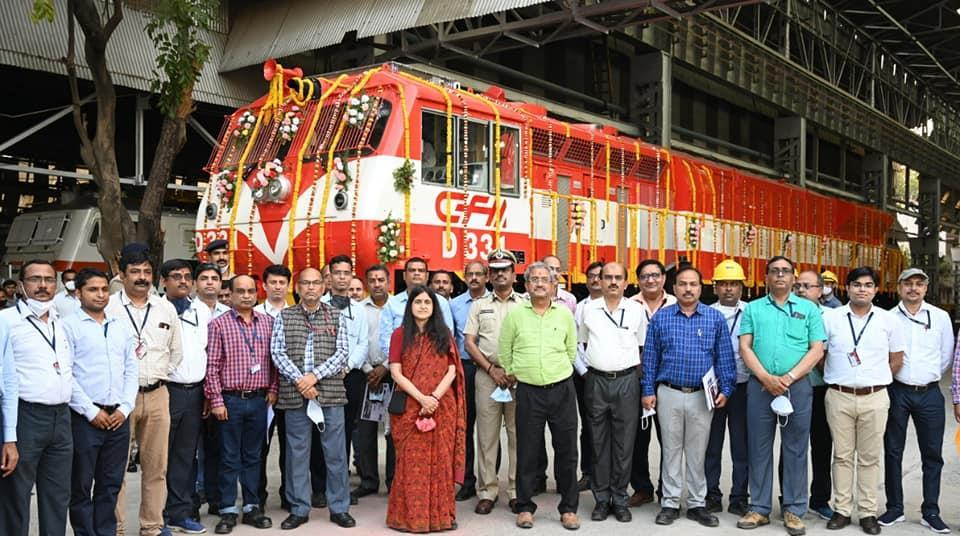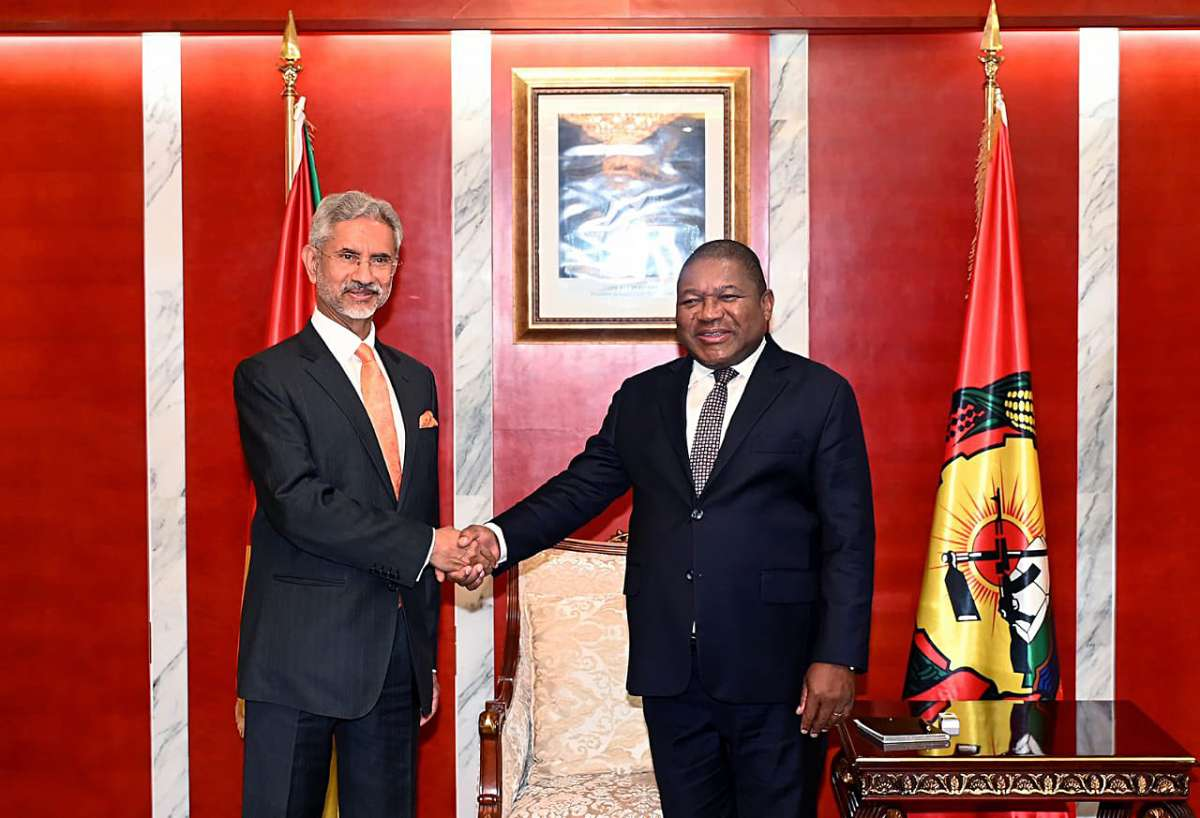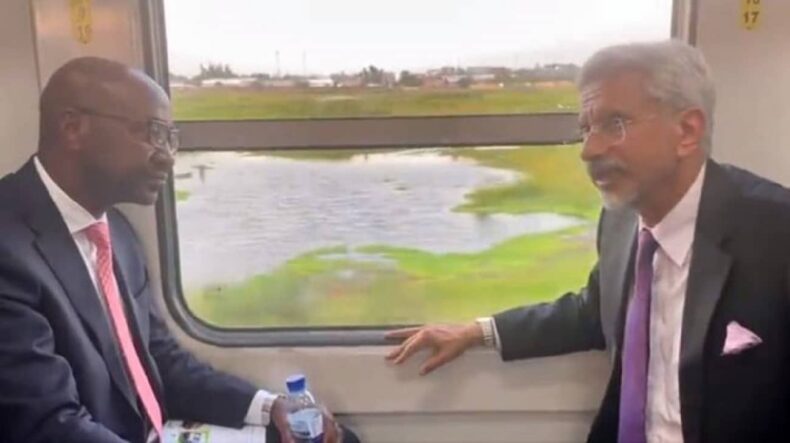During his visit to Mozambique, External Affairs Minister S. Jaishankar used a “Made in India” train and discussed the current situation with the country’s transport minister about extending rail networks, electric mobility, and waterways connectivity.
After meeting with the country’s senior officials, including President Yoweri Museveni, in Uganda, Mr. Jaishankar travelled to Maputo to discuss potential collaboration in the fields of commerce, infrastructure, energy, and defence. In addition to Mateus Magala, the minister of transport for Mozambique, the external affairs minister also held a news conference as the train was going.
It is the first time an Indian minister of external affairs has ever visited Mozambique, and he will be there from April 13 to 15.
Mr Jaishankar visited a temple and spoke with members of the Indian community.
“A wonderful discussion on green transportation with Mateus Magala, Chairman of the Mozambican Port and Rail Authority and Minister of Transport and Communication of Mozambique. The conversations were on the various modes of transport in both countries,
in this aspect, India is a trustworthy partner, he tweeted on Thursday.
How these trains arrived in Mozambique

The line of credit (LoC) was formerly provided to the government of Mozambique by the government of India (GoI). The credit is intended to be used for the purchase of 90 coaches (60 locomotive-hauled coaches and 30 DEMU coaches) and six 3000 HP diesel-electric locomotives, along with maintenance support for five years. The supply is going to be handled by RITES, a PSU under the Ministry of Railways. RITES signed agreements with Banaras Locomotive Works (Varanasi, UP) for locomotives and the Modern Coach Factory (Raebareli, UP) for coaches, respectively. The Indian Railways (IR) have a rail coach manufacturing facility at Lalganj, which is close to Raebareli. On November 7th, 2012, the plant was officially opened.
It is one of the most technologically advanced coach production facilities in the world and has several cutting-edge industrial machines and robots. As a result, it utilises a smaller workforce than other Indian Railways coach production facilities. Nearly eight years after it was originally put into service, MCF sent its first train carriages of export quality to Mozambique in Africa.
In October 2020. For Mozambique, MCF produced ‘Make in India’ coaches of various types, including first-class, second class and third-class AC coaches, as well as pantry cars, generator cars and non-AC lavatory cars.
The coaches for Mozambique are shorter in length than the Indian Railways’ LHB coaches and have a cape gauge of 1,067 mm (between the metre and wide gauge).
Given that the Mozambique coaches are shorter and of lower gauge, they should cost less than Rs 2 crore each, compared to an average cost of Rs 2.2 crore for an LHB coach.
Features of Loco-Hauled Made-in-India:

These coaches had coupes instead of longitudinal side berths, exactly like IR First AC coaches.
Seats and berths: The cushions must contain PU foam (per RDSO/2007/CG-04), coated in fire-resistant fabric (per MMDTS 19021 Rev-02), and be upholstered with high-quality material or faux leather (per RDSO/2008/CG-07). (Colour shade according to CFM requirements)
Windows: For AC coaches, the windows must be sealed. For non-AC coaches, vertical sliding windows are supplied, and there should be four emergency windows per coach.
Doors: Entry Doors must be hinged, sliding vestibule doors must lock in both open and closed positions, and baggage van body side double sliding doors must be of the hinged kind.
Bathroom: FRP is a modular bathroom with a mirror, a water tap, a handrail, a towel rack, coat hooks and a sink.
Water Tanks: Two 660-litre underslung water tanks for the AC, a 16-litre overhead water tank, and a 450-litre underslung water tank for the power vehicle and non-AC coaches 390 litres of overhead water per toilet
Inside each AC carriage, a curtain will be there
Lighting and Luminaires: BRL and appropriate LED Lighting
PA/PIS: A reliable public address system that runs through the whole train and pipes music to every coach.
Fire Safety: Automatic smoke/fire detection with an alarm system in AC coaches, DCP type fire extinguisher, and automatic fire detection cum suppression system in power coaches
Conclusion

Indian Railways is placing a significant wager on MCF to use cutting-edge robotics to produce coaches of the highest calibre.
The Modi government allocated Rs 480 crore in its budget for 2018–2019 to increase MCF’s production capacity from 1,000 to 3,000 metric tons annually by the end of 2020–21.
To scale up production of these next-generation trains, the national transporter also hopes to transfer from ICF to MCF the manufacturing technology for train sets similar to Train 18 or the Vande Bharat Express.













